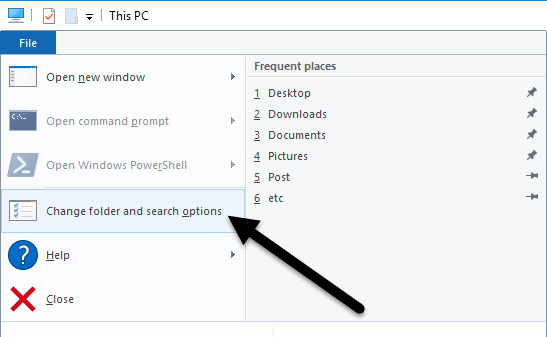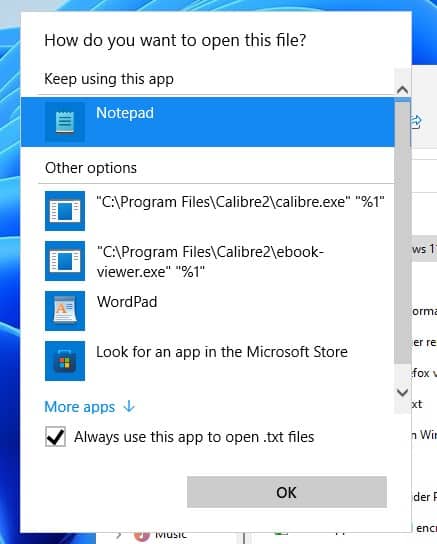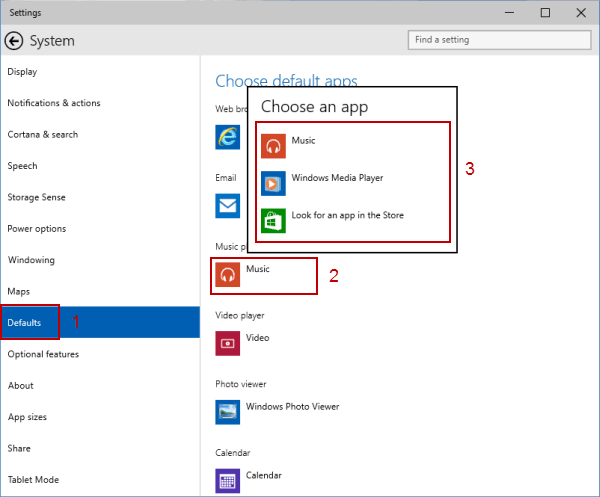

- #Windows 10 set default app to open files how to
- #Windows 10 set default app to open files install
- #Windows 10 set default app to open files windows 10
- #Windows 10 set default app to open files Pc
#Windows 10 set default app to open files how to
RELATED: How to Choose Your Default Applications on an iPhone or iPadĪnd that’s it! In theory you could customize all the possible app combinations from this section alone, but in case you prefer a different system of app management, Microsoft has included two other pathways to keeping your default launch instructions in check. To change this, just scroll down to “.mkv” on the left, and once selected, choose the corresponding application on the right that you’d like to set as the default. mkv files in Windows Media Player rather than the in-house Movies app.
#Windows 10 set default app to open files windows 10
Here you’ll be greeted by a two-tiered menu, the first containing every file type that Windows 10 is designed to handle, and the second with the list of apps you currently have installed on the machine. To choose which apps launch which types of media or link by the type of file, select the “Choose Default Apps by File Type” option. Overall, how you choose to organize your app commands is a matter of personal preference, but certain options such as “Default Apps by File Type” can usually tend to be a bit easier to manage for the average everyday user.
#Windows 10 set default app to open files install
Though these are the original options you’ll find on a fresh install of Default Apps, you can always use the following options to customize exactly how Windows 10 will handle different requests based on the file type, the program, or an underlying launch protocol.

#Windows 10 set default app to open files Pc
In the left-hand column, expand This PC so that the following folders are displayed: 3D Objects, Desktop, Documents, Downloads, Music, Pictures, and Videos.Open File Explorer by either left-clicking on the File Explorer icon on the Taskbar, left-clicking on the Start button and selecting File Explorer, right-clicking on the Start button and selecting File Explorer from the Power Users menu or by pressing the Windows logo key + E.

How to change the default location of user files in Windows 10 I usually create a folder called User Files in the root of the D: drive and then create the individual folders for each user for example, D:\User Files\ username\Desktop, D:\User Files\ username\Documents, etc. Before you change the location of the user file/folders, you will need to create new folders for your files. Now there are seven (7) user file folders that you can be relocate: 3D Objects, Desktop, Documents, Downloads, Music, Pictures, and Videos. User files should always be moved to the HDD to conserve space on the SSD. Since SSD's are generally smaller in size and faster than HDD's, they usually are used just for the operating system and program files. Nowadays, a few computers are coming with two drives, a Solid State Drive ( SSD) and a Hard Disk Drive ( HDD). Here's how to change the default location of user files in Windows 10. But if you have a second drive inside your computer, you can quickly move your user folders to it. User files ( documents, music, photos, etc.) can take up a lot of space on your computer.


 0 kommentar(er)
0 kommentar(er)
